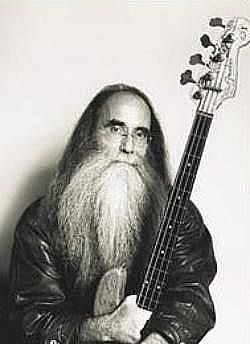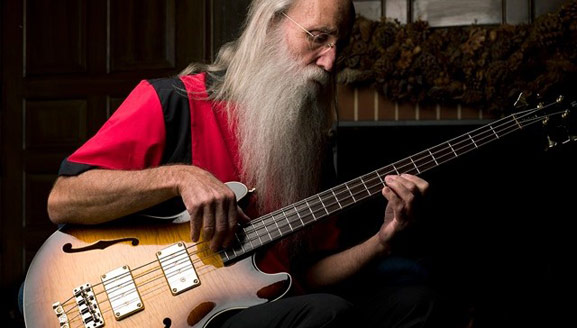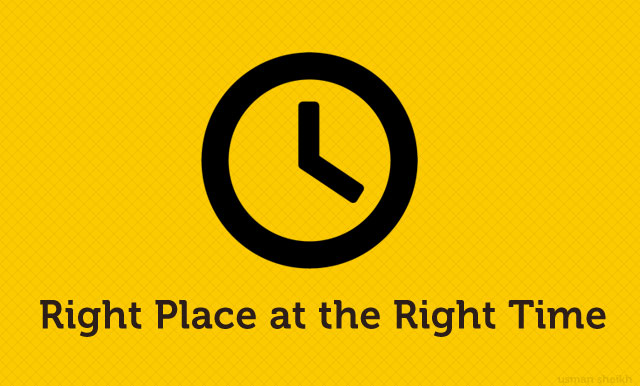I recently ran across an article on musicradar.com about Lee Sklar’s top 5 tips for bass players. These aren’t the usual tips that you read about stretching, playing in the pocket, or keeping an eye on the kick drum. Leland Sklar is one of the most recorded bass players ever and if he has some advice to give you as a musician, you should listen. And these are tips for just bass players. Anyone can learn from what he says. So let’s get into it….
I’m going to copy Lee Sklar‘s quotes from the site. So, again, this comes from musicradar.com and isn’t from any personal interview I did with him.
Intro:
 “If you have aspirations of being a studio musician, you really have to bring a lot more to the table than the average player. With that in mind, it behooves you to have as much facility and versatility on your instrument as you can.
“If you have aspirations of being a studio musician, you really have to bring a lot more to the table than the average player. With that in mind, it behooves you to have as much facility and versatility on your instrument as you can.
“Now, I say that with the full knowledge that I might not be the most perfect example of what I preach. For instance, I’m not a slapper; I was just never good at it. If that’s what somebody wants, I just tell them to call up one of my friends – I know some great players who are monster slappers.
“But in general, I would say that you should experience as much music as you can. I can walk into a date where we might be doing a reggae song, a country song or a fusion kind of thing. You never know what they might throw at you, so you have to be ready to switch gears quickly. Being well rounded as a musician will greatly improve your vocabulary.”
Tip #1: Learn As Much Music As You Can
“If you have aspirations of being a studio musician, you really have to bring a lot more to the table than the average player. With that in mind, it behooves you to have as much facility and versatility on your instrument as you can.
 “Now, I say that with the full knowledge that I might not be the most perfect example of what I preach. For instance, I’m not a slapper; I was just never good at it. If that’s what somebody wants, I just tell them to call up one of my friends – I know some great players who are monster slappers.
“Now, I say that with the full knowledge that I might not be the most perfect example of what I preach. For instance, I’m not a slapper; I was just never good at it. If that’s what somebody wants, I just tell them to call up one of my friends – I know some great players who are monster slappers.
“But in general, I would say that you should experience as much music as you can. I can walk into a date where we might be doing a reggae song, a country song or a fusion kind of thing. You never know what they might throw at you, so you have to be ready to switch gears quickly. Being well-rounded as a musician will greatly improve your vocabulary.”
Tip #2: Learn How To Read Music
“This is absolutely essential if you want to be a studio player – I just can’t stress it enough. Sure, if you’re just going to be a player in your own band – and I’m not denigrating that for a second – you won’t have to read; you’re making up your own songs, and that’s fine. But if you’re going into a session, you have to be a reader.
“There are a couple of great studio players who weren’t good readers. Erroll Garner could  never read music, but he was one of the greatest keyboard players ever. And there are a ton of guys out there in very successful bands who, if you put a sheet of music in front of them, they wouldn’t know what the hell they were looking at. Being a great musician and being a reader can be mutually exclusive.
never read music, but he was one of the greatest keyboard players ever. And there are a ton of guys out there in very successful bands who, if you put a sheet of music in front of them, they wouldn’t know what the hell they were looking at. Being a great musician and being a reader can be mutually exclusive.
“But again, if you want to pursue the studio scene, this is a must. You have to read, and you have to be able to read on many levels: Nashville number charts, chord charts, notated music and so on. I’ve even seen mistakes on charts, where they wrote bass parts on the treble clef instead of the bass clef. But that doesn’t matter, because your job isn’t to say, ‘Hey, this stuff is wrong.’ Your job is to figure it out and play what they want.”
Tip #3: Personality Counts
“This is true in any business, but it’s especially important in a creative environment. You want to be somebody who people can get along with. If you’re in a studio or a rehearsal room, you have to be the kind of guy who makes other people feel comfortable. Let’s face it: If you’re a dick, you’re not going to get calls, no matter how great a player you are.
“Be engaged. If you finish cutting a track and everybody goes into the control room to listen to the playback, don’t just sit there in the studio checking your e-mails on your phone or whatever. Go into the control room with everybody else and listen to the playback. And if you hear something that you think might improve the track, speak up. Don’t just sit there silently thinking, ‘Oh, that part’s screwed up. Hope they don’t notice.’ You might be the guy who says that crucial thing at just the right time.
“In general, you have to be a positive person in these situations. I’ve always looked at my gig as having two sides to it, the player and the cheerleader. You want to try to keep the energy level up, even when things are deadly serious. Be enthusiastic, be ‘there.’ There are tons of guys who can play bass, but how many play bass and bring enthusiasm and creativity and professionalism to the table? Be that person. Be the guy you’d hire if it were your session.”
Tip #4: Stay Healthy
“One of the things that really helped me on the road is the fact that I never drank or did drugs. I was always ‘there’ 100 percent – mentally healthy and physically healthy.
 “It can be an arduous business. Being on the road is tough, even if you’re on a major, major tour and you’re traveling by private plane and staying in first-class hotels. Every day, you’re away from your normal life, so you have to keep a positive attitude, and of course, the best way to do that is to stay healthy.
“It can be an arduous business. Being on the road is tough, even if you’re on a major, major tour and you’re traveling by private plane and staying in first-class hotels. Every day, you’re away from your normal life, so you have to keep a positive attitude, and of course, the best way to do that is to stay healthy.
“Drinking and drugging is just no good. It’s no way to pass the time, and it’s just no way to live. Quite the opposite: I’ve seen guys flame out; I’ve seen ‘em die out there. It’s tragic beyond words.
“As a musician, I have to say that I don’t like sharing the stage with somebody who’s incapacitated. I find it embarrassing and humiliating and disrespectful – to everybody – the rest of the band and the audience. When you get up on that stage, you have a building full of people who have paid hard-earned money to see a great show. They deserve the best that you can give them. If you go on stage and you’re all messed up, you’re disrespecting everybody in that room, your fellow musicians and the people in the audience.
“So stay healthy. Eat right, try to sleep, exercise, and please don’t get involved in the all of those bad things. No good can come from it.”
Tip #5: See The World
 “One of the best things about being a touring musician is that it gives you a chance to see the world. I’ve been to places that I never would have gone to if I had, you know, a ‘regular job.’ Seeing the world is one of the greatest perks of this job.
“One of the best things about being a touring musician is that it gives you a chance to see the world. I’ve been to places that I never would have gone to if I had, you know, a ‘regular job.’ Seeing the world is one of the greatest perks of this job.
“I’m always amazed when I bump into fellow musicians in hotel lobbies and I ask them what they did the night before, and they’ll say things like, ‘Oh, I dunno, We kind of just hung out in the room.’ I’m thinking, ‘Are you joking? Here we are in Paris or Tokyo or Oslo or wherever – Rome – and you guys sat in your hotel room?’
“Get out there and dig it. Have fun. Being a musician can make you part of a world community, not just a local one. A lot of people have misconceptions of what the world is all about. Through my travels, I’ve experienced so much and talked to so many people, and that’s really enriched me as a person.
“And as a musician. I think anything that you can do that makes you a better person is going to be reflected in the music that you play. So if you’re lucky enough to get on a tour, get out there and see things. Go to the shops, the museums. Go talk to the people. Music is the common bond we all share, so engage with people and hear what they have to say. Those are the same people you’re playing in front of that night. Remember that.”
—
Some great advice there.
In closing I’d just like to say that if you haven’t checked out my band’s recent video then you probably should. It’s one of those lyric videos and I made the whole thing myself. Good for me. Also, the album is up for pre-order now. But the video contains my singing, bass paying, keyboarding, and song writing. So, please click the link below to check out what I’ve been working on.






Hi Jay!
Musicradar screwed the ‘Previous’ link on Tip 1/5 page. I suppose that’s why you missed to copy the real Intro text, which is:
“In a business where credits and stats matter, Leland “Lee” Sklar’s accomplishments are bound to make even the most jaded among us a little awestruck. To date, he’s appeared on over 2,500 albums (with sales in the hundreds of millions) by artists such as James Taylor, Carole King, Jackson Browne, Phil Collins, Rod Stewart, Linda Ronstadt, Hall & Oates, David Bowie, Ray Charles, BB King and Lyle Lovett, many of whom have also called upon the veteran bassist’s services for tours.
“You get hired based on how you approach the music and the situation,” Sklar says. “It’s not just about bringing your chops to the date; it’s what kind of energy and professionalism you bring with you and how you improve the creative process. There are a lot of variables that go into that.”
He pauses, then expands on that thought: “As a studio or touring musician, you owe it to the people who hire you to give it your best. There’s a lot of money being spent on sessions or on tours, and the success or failure of your performance could make or break an artist’s career. If you pick up the phone and say yes to doing a date or a tour, there are certain obligations that go along with that beyond your facility as a player. I’ve seen guys take that for granted, and those are the guys who don’t get calls anymore.”
For bassists looking to horn in on Sklar’s action, beware: At age 67, he’s booked solid and is just as hungry as ever to play with artists both legend and unknown. “I still believe that the next record I make could be one of the best ever,” he enthuses. “There’s a lot of great things being done everywhere, and I love being part of it.” Nonetheless, on the following pages, he does offer his Top Five Tips for Bassists.”
Anyway, it’s a great article, thanks for sharing. I like your own writings too. Keep blogging and playing! 😉
Cheers,
Jani, Hungary